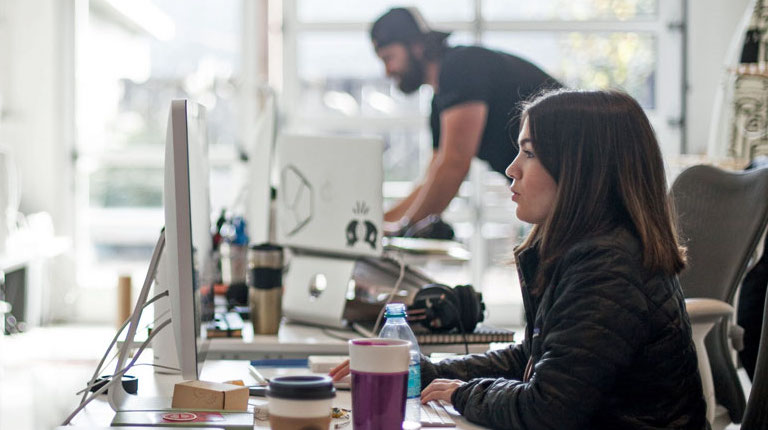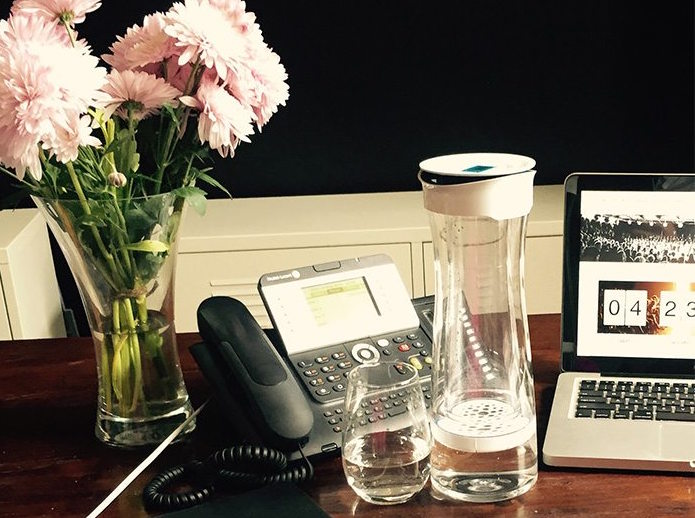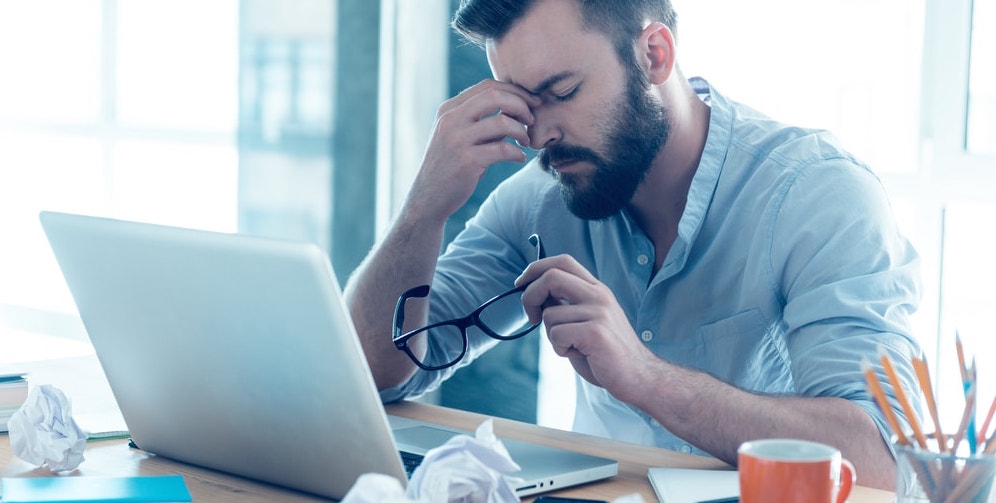It’s probably a regular scenario where you’re at work and a couple of hours after you come back from lunch, you get a dip in energy, and you begin to feel tired. This isn’t an accident, and many people experience this. We’ll explain why this happens and the steps you can take to limit the effects of this.
What are the causes of mid-afternoon tiredness?
1. Little Movement
Especially relevant if you have a job that requires you to sit down for most of the time. However, this can increase the feeling of wanting to sleep.

A new development in the working world is the standing desk which is becoming more popular. This allows you to stay active and engage more of your muscles compared to being completely sedentary sitting in a chair.
You don’t need to use a standing desk for the whole day, but just at times when you feel bouts of tiredness starting to develop.
2. Diet
Diet plays a huge role in your overall mood and alertness. Foods that are rich in carbohydrates such as white rice and pasta can lead to you feeling sleepy and also cause instant spikes in blood sugar levels, which then fall just as quickly which results in tiredness.
Many hormones are also affected by our diet including serotonin which is increased when we consume carbohydrates which is the reason you feel good inside when you have a sweet snack such as a doughnut.
Too many carbohydrates can also increase the production of Melatonin which is a hormone that triggers sleep, which is the reason why you’ll often feel like sleeping after a high carbohydrate infused meal.
If you're going to have carbohydrates for lunch, ensure that they are complex carbs such as brown rice and bread.
If you realise that you only feel tired after eating a particular type of food or product, then this may mean that you suffer from a specific intolerance or food allergy.
The symptoms of these digestive system problems include bloating, tiredness and mood swings which are all associated with the post-lunchtime slump.
3. Dehydrated
Dehydration can make you feel tired low on energy, and this is why you need to ensure that you drink water regularly throughout the day. The recommended consumption amount is two litres which is easy when you break it up throughout a full day.
You shouldn’t wait until you feel thirsty to drink water, because by this point your body is already dehydrated and has been for some time.

4. Decrease in Body Temperature
Naturally, the human body tends to decrease its core body temperature mid-afternoon which is part of the natural internal body clock, referred to as circadian rhythm. This then triggers the release of the sleep hormone Melatonin which gives you the feeling of tiredness.
You can combat this feeling by getting some fresh air and going for a walk or just taking a five-minute break from your current work task. You’ll find when you come back to the task your brain will be refocused and it’ll be easier to concentrate.
How to decrease the effects of mid afternoon tiredness?
1. Break Your Calorie Intake into Smaller Meals
A large sized meal needs more energy to digest it efficiently, so as an alternative try to have smaller meals throughout the day while still hitting your desired calorie intake goal.
Eating more frequent meals will help to get blood sugar and other hormone levels more stable. Without these large spikes, this will limit the amount of tiredness you feel throughout the day.
2. Exercise
If you feel tired, it’s easy to decide not to move from your work desk but venturing outside can make you feel significantly better. You don’t need to do anything strenuous, and a simple brisk walk will usually be enough.
Light exercise can increase alertness because it increases oxygen and blood flow to the brain which then decreases the effects of a post-lunchtime meal slump.
3. Drink Coffee
We all know that coffee is an excellent tool as a pick me up because it increases energy levels. Caffeine increases levels of Serotonin, Dopamine and Acetylcholine which then cause our mental and physical energy to rise.
How much caffeine you need to consume to feel the effect will vary from person to person, but you need to be aware that caffeine stays present in the body for up to six hours.
Because of this, you should taper off consumption after mid-afternoon otherwise this could affect your ability to sleep in the evening.
Dopamine production helps to increase concentration levels by blocking the pathway of Adenosine receptors. Usually, the brain sends signals around your body when it’s time to go to bed, but Dopamine inhibits this, which is why you feel more alert.
4. Don’t Skip Breakfast
We’ve all heard that breakfast is an essential meal of the day, and it can also help to reduce tiredness later in the day. This is because if you don’t eat until lunchtime, this causes a spike in blood sugar levels which can cause you to crash.
Also, you’ll be more hungry which means that you’re more likely to make poorer food decisions at lunchtime which will lead to you buying less healthy foods or a bigger sized serving.
Eating breakfast also allows you to spread your meals throughout the day evenly, so your hormone balance remains more consistent.
5. Evaluate Your Sleep Schedule
If you stick to the recommended sleep hours of between seven and nine hours each night, then this will decrease the chances of you feeling tired mid-afternoon.
Less than seven hours of sleep will mean you’ll find it harder to stay awake, so if this is the case, then you may need to go to bed slightly earlier. This could mean that you need to watch slightly less TV, but you need to stick to a regular bedtime each night to maintain consistency.
In an ideal world, if you get the right amount of sleep, you can wake up at the same time each day without the use of an alarm clock, and you’ll wake up naturally.

